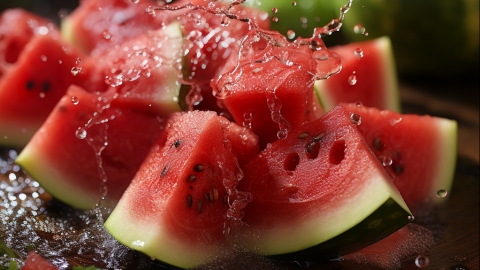Can people with milk protein allergies eat watermelon?
Generally, individuals with a milk protein allergy can usually eat watermelon. The analysis is as follows:

Milk protein allergy mainly involves an allergic reaction to the protein components present in milk or dairy products. This allergic reaction may manifest as rash, itching, nausea, vomiting, diarrhea, and other symptoms. Watermelon, as a fruit, primarily contains water, vitamins, dietary fiber, and does not include milk protein components. Therefore, individuals with a milk protein allergy typically will not experience an allergic reaction when consuming watermelon. Watermelon itself is not a common allergen, and its components are not directly related to milk proteins.
Although watermelon does not contain milk protein, one should still be cautious during consumption to avoid eating it together with foods containing milk protein, such as dairy products and ice cream, or immediately consuming these milk protein-containing foods after eating watermelon, as this may increase the burden on the gastrointestinal tract and cause discomfort. Therefore, it is recommended to consume watermelon in moderation and avoid consuming it simultaneously with foods containing milk protein.
In daily diets, maintaining vigilance and avoiding contact with known allergens can help reduce the occurrence of allergic reactions.









